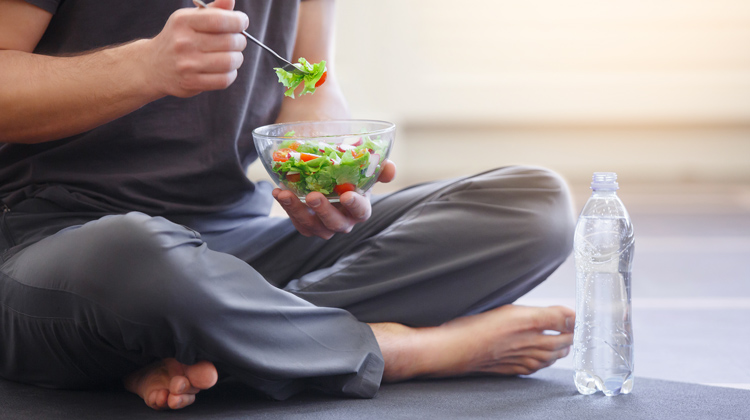SSS Team, SSSPORTS.COM

With the Holy month of Ramadan upon us, our daily routines undergo changes that haven’t been done for at least a year. These changes require getting acclimated to and may be slightly discomforting. Our bodies are incredibly adaptable and always seek homeostasis for normal functioning. However, the acclimatization process can take days or weeks, depending on the individual.
With this blog, we try to address some of the common health issues faced in Ramadan. The list is as follows.
Headaches are caused by a variety of reasons, some of which could be low blood sugar levels, low water levels, insufficient sleep or stress – apart from the ones due to cold, flu or sinus. Ramadan coupled with quarantine does have an effect on our sleep schedules.
What helps: Make sure you get ample sleep, at least 7-8 hours every day. Be sure to eat healthy foods and drink enough water from iftar to suhoor. However, If the headaches persist for long hours, increase in severity or turn into migraine, please seek professional medical help.
Another common occurrence. Indigestion symptoms may include unusual stomach noises, pains in the abdomen or just frequent trips to the washroom. All these are usually due to over-eating or eating a lot of oily, spicy or fatty foods.
What helps: A balanced diet definitely helps and avoiding these foods in large quantities, especially while breaking fast. Pace your meals so the digestive system isn’t burdened. Laban and yoghurt are effective cooling agents that soothe the digestive tract. If the pains are severe and frequent, please seek professional medical help.
To simplify, this is a feeling of drowsiness and dizziness during the day. It can also happen when suddenly waking up or quickly standing up from a stationary position. The probable cause of this can be narrowed down to fluctuating blood pressure, low blood sugar levels, low water levels or iron deficiency. If you have a case of anaemia, the condition may be aggravated while fasting.
What helps: As mentioned before, make sure you get ample sleep, at least 7-8 hours every day. Drinking enough water and a healthy diet are effective measures. Including high-iron sources like legumes, leafy greens such as spinach, or red meat might help keep anaemia at bay. Please seek medical help if the condition persists for days or worsens with time.
During Ramadan our bodies are not just dehydrated but also experiencing hypoglycemia (low blood sugar). This can sometimes lead to feelings of irritability, frustration, and anxiety, which can exacerbate mood swings and cravings.
What helps: The effects of exercise are not to be underestimated, courtesy post-workout endorphins that are responsible for that rejuvenated, ‘on-top-of the-world’ sensation. Keep yourself hydrated and food will be the last thing on your mind. Get enough sleep. You must rest about 6-8 hour per night you are fasting. Get a good quality vegetable broth or bone broth. You can read more about maintaining your mental health here .
Consuming cold drinks while breaking the fast or a low immunity might be to blame for this one. Fasting through the day causes the body to go through minor physiological changes, often resulting in elevated body temperatures. Sudden consumption of cold drinks at Iftar often results in cold, cough and occasionally fever.
What helps: To strengthen the immunity, include vitamin C-rich foods in your diet. Although this is common, it also is a very precarious time to be falling sick and would be highly advisable to get a check-up done as soon as possible in light of the current pandemic.

To sum it all up, the following 4 aspects will help keep the majority of health problems at bay – A healthy diet, regular exercise, ample sleep, and balanced mental health.
These maybe quite simple to think of but are often overlooked. All of the above are simple household tips and are in no way comparable to expert advice from certified doctors. Please seek medical help in case of ambiguous symptoms and other complications.
The following blogs will further help with your health goals in Ramadan.
Avoid discomfort and make the most of this Holy month. We hope you have a healthy and blessed Ramadan.
Tag us in your home workouts and meals on Instagram @sunsandsports.
Stay tuned for more recipes, fitness and health tips!
Subscribe to our newsletter and download our app on the App Store or Google Play for the latest updates. Grabe our best Ramadan offers at Sun & Sand Sports online store.
The Holy month of Ramadan is a time to practice self-control, self-discipline, sacrifice and empathy…